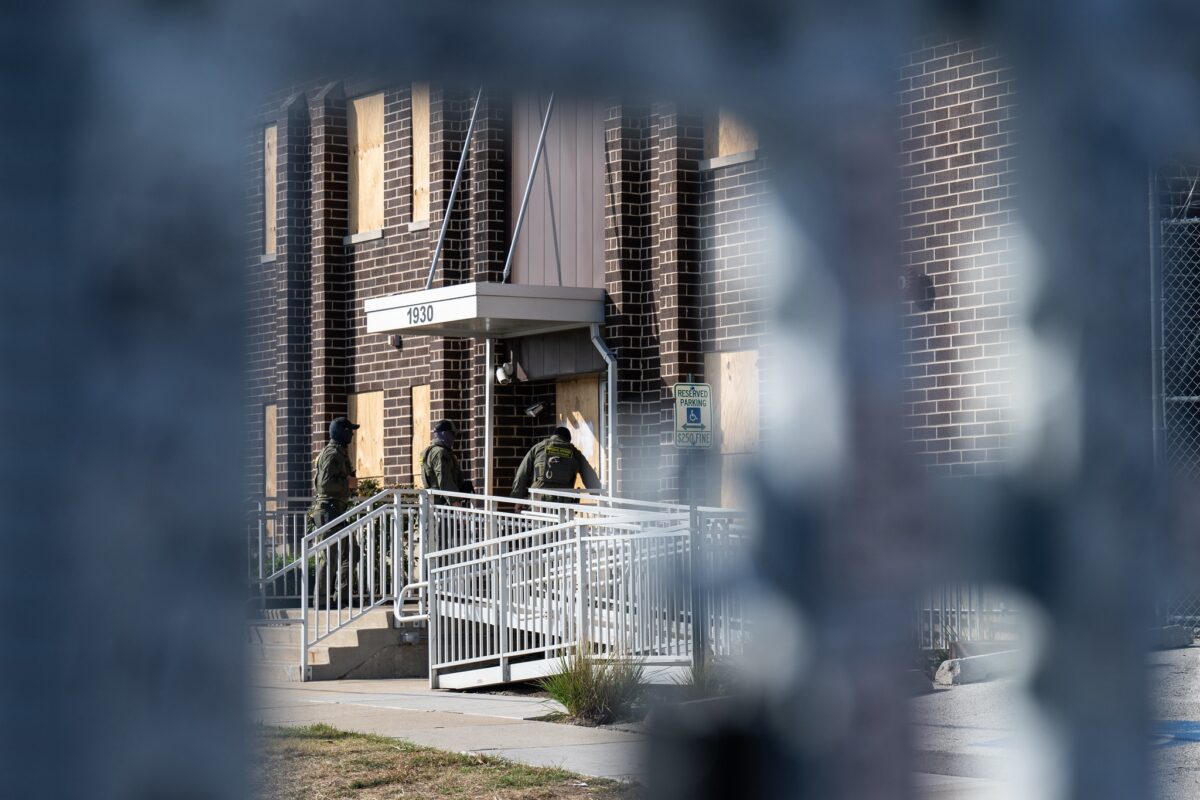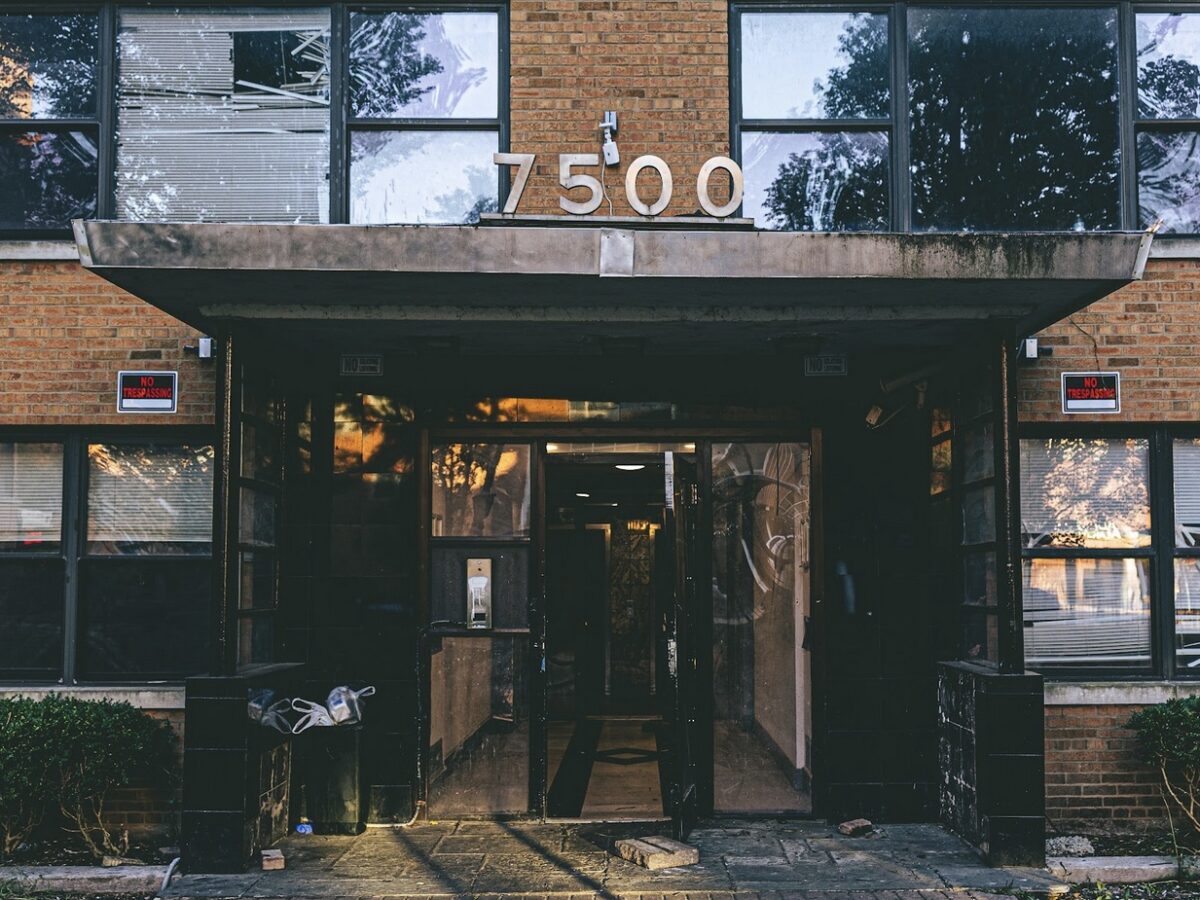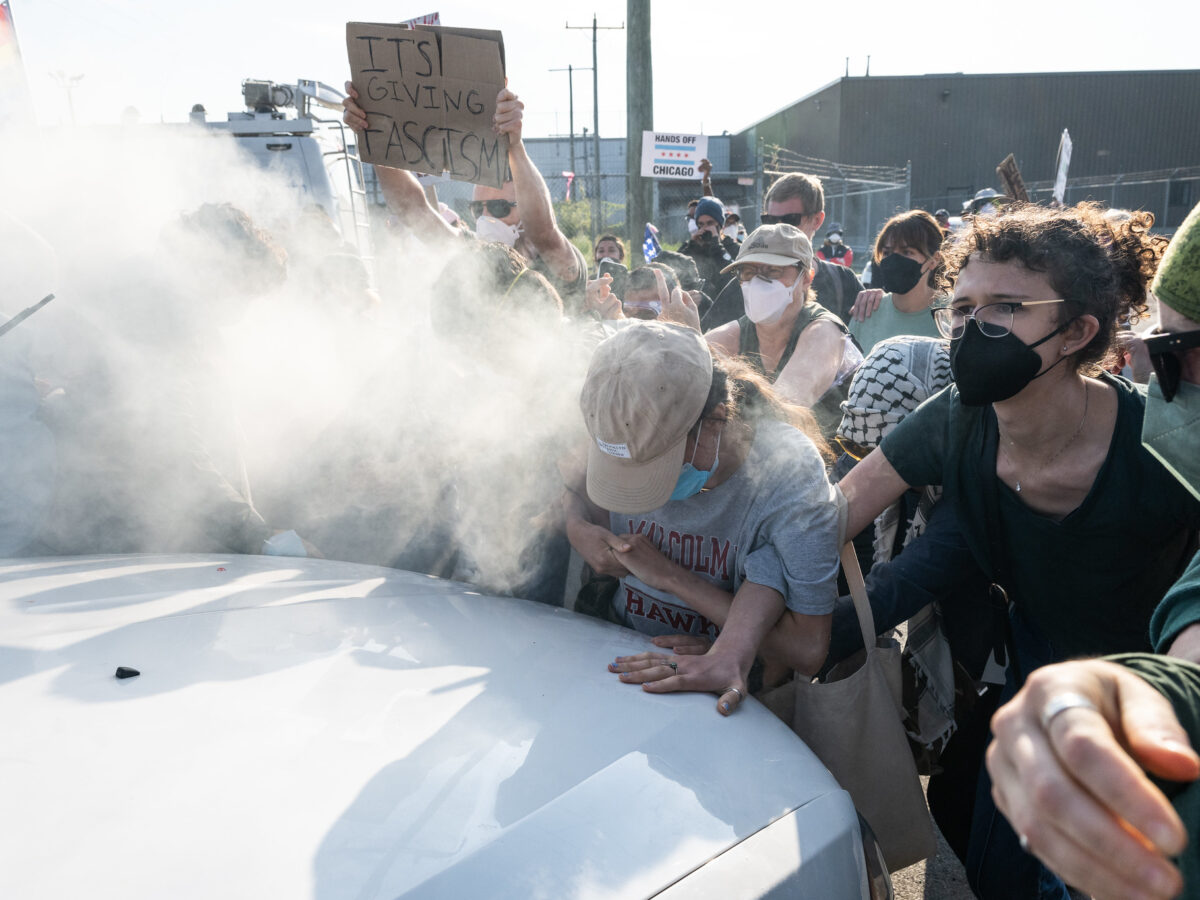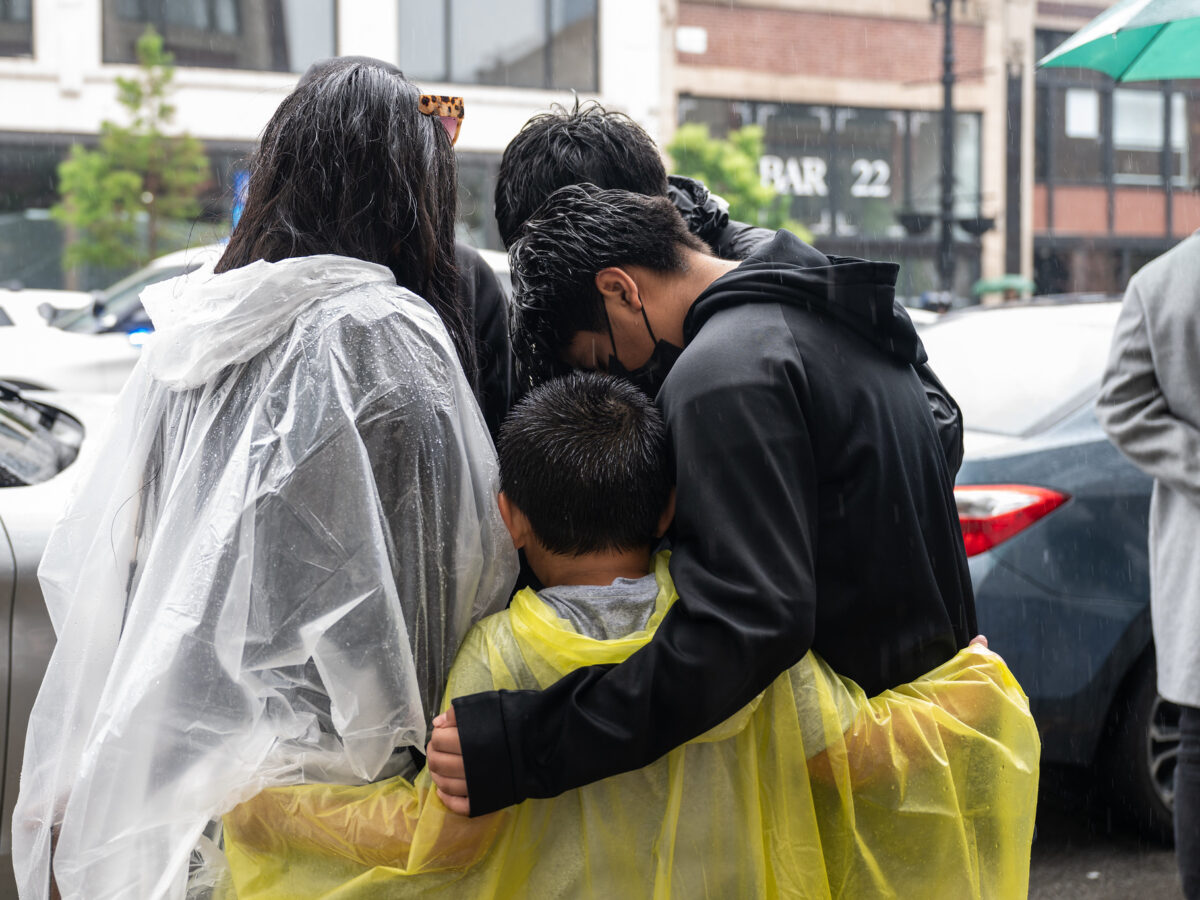People detained at the Immigration and Customs Enforcement (ICE) facility in Broadview are sleeping on concrete floors amid “urine and dirty water,” according to a federal class action lawsuit filed late last week in Chicago.
Among other allegations outlined in the suit, the plaintiffs claim federal agents at the facility deny detainees hygiene products, medicine and adequate food and water.
“People are forced to attempt to sleep for days or sometimes weeks on plastic chairs or on the filthy concrete floor,” the suit alleges. “They are denied sufficient food and water. They cannot shower, they are denied soap, hygiene items, and menstrual products, and they have no way to clean themselves.”
The suit also claims that federal authorities have blocked detainees’ access to legal counsel in an attempt to hurry along their deportation process.
“You have no rights in here,” federal immigration agents told a detainee named Santos Rebolledo Altamirano when he asked to speak with his lawyer, according to that detainee’s declaration for the lawsuit.
“The agents were cruel. They swore at me and the other detainees and constantly told us that we are not allowed to be in the country,” Rebolledo Altamirano said.
While making his declaration from the North Lake Correctional Facility in Baldwin, Michigan, Rebolledo Altamirano also claimed officers did not do anything to address the sickness of another, older man held at Broadview until he began foaming at the mouth.
Read Santos Rebolledo Altamirano’s testimony:
His is one of dozens of similar declarations that attorneys with the American Civil Liberties Union of Illinois and the MacArthur Justice Center compiled before filing the lawsuit on October 30. They included testimony from both immigrants and born U.S. citizens; attorneys, journalists, clergy members and people held in Broadview.
Taken as a whole, the declarations paint a stark picture of what detainees have been forced to endure at the immigration processing facility.
“Toward the end of my time at Broadview, I got very sick because of the unsanitary conditions and from being forced to sleep on the dirty, hard floor,” Claudia Carolina Pereira Guevara, who says she was detained for five days at Broadview, said in her declaration. “When I awoke, I was numb from the waist down. I could not feel my legs. I woke up vomiting. My body was weak and frail. The officers eventually took me out of the cell, but they refused to take me to see a doctor or to the hospital.”
According to Alexa Van Brunt, the director of the MacArthur Justice Center Clinic at Northwestern Pritzker School of Law, addressing abuses in the detention facility is complicated by the fact that these declarations are the main documents thus far available to advocates. Few videos or photos of the inside of the facility are publicly available, and among the suit’s allegations is that the government has purposefully cut the facility off from the outside world—not just from attorneys, but from family members, community leaders, lawmakers, and clergy.
“The nature of the suit is: ‘that place is a black hole,’” Van Brunt said.
The exterior of the facility does little to assuage that perception. Plyboard covers the squat brick building’s front-facing doors and windows, and green mesh obscures the view inside its main vehicle bay. Militarized federal agents stand guard outside during protests, and they can monitor the area both with static surveillance poles and with remotely operated drones. For several weeks between late September and early October a metal fence further barricaded the facility against the public, until U.S. District Judge LaShonda Hunt ordered its removal on October 14.
Unraveled Press co-founder Steve Held, who federal agents arrested and detained at the Broadview facility while he was covering a protest there on September 27, claimed in his declaration that agents attempted to stop him from observing the facility from the inside.
“Within the first hour or two, agents taped paper bags over the windows so that we could not see what was going on in other areas of the facility,” Held wrote.
The Broadview facility is officially designated as a “short-term staging facility,” meant to hold up to 236 people for no more than 12 hours, according to Department of Homeland Security Audits from 2018 and 2023.
An ICE memo dated June 24 revised that policy by pushing the time limit people can be held to 72 hours. WBEZ reported in early October that between June 24 and July 28, ICE held at least 21 people for longer than 72 hours, with some detainees held longer than five days.
ICE Deputy Field Office Director Shawn Byers, while testifying before U.S. District Judge Sara Ellis as part of a separate civil suit alleging abuses by federal immigration agents on October 20, said the “intention” of the Broadview facility was to hold people for hours, not days.
The lawsuit filed last week claims people have been held there far longer.
“Attorney Laura Smith’s client was detained at Broadview for three weeks, from September 17, 2025, until October 8, 2025. Three of her other clients were detained at Broadview for approximately five days,” the suit alleges.
During an emergency hearing on the suit on Friday afternoon, U.S. District Judge Robert Gettleman said he believed two named plaintiffs in the suit, Pablo Moreno González and Felipe Agustin Zamacona, had been moved out of Broadview. The government’s attorney Joshua Press confirmed they’d been moved Friday morning.
Van Brunt and other attorneys for the plaintiffs said they understood Moreno Gonzalez and Augustin Zamacona had been moved to Kansas, with Van Brunt complaining the government was making it “impossible” for the pair to access counsel.
“No party should be prohibited from communicating from counsel, particularly in a case of this magnitude,” Gettleman said in response.
The judge set a 9:30 a.m. hearing on the case for Tuesday, ordering that the class representatives be able to attend the hearing in person or virtually. He set a deadline of 4:00 p.m. on Monday for the government to return Moreno Gonzalez and Augustin Zamacona to Illinois for that purpose.
On Monday, Van Brunt said the pair had been moved to Wisconsin. “They are not in Illinois, and we are very frustrated that we haven’t been able to contact them,” she said. On Tuesday morning, the MacArthur Justice center confirmed both plaintiffs were back in Illinois.
Editor’s note, November 4: This story was updated on Tuesday to include new developments regarding the plaintiffs being returned to Illinois.
Dave Byrnes is a Chicago-born independent journalist currently covering the ongoing Operation Midway Blitz. He lives in Lincoln Square, but is a lifelong White Sox fan.





